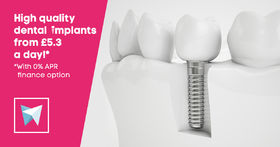Why bruxism occurs is not always obvious. The belief that grinding teeth and problematic dental occlusion are causally related was widespread in the past. However, there is little evidence to support this belief.

About the relationship of the bruxism and dental occlusion is also to note
-
clenching ("silent" bruxism), is not sufficient to eliminate occlusal interference
-
bruxism may occur even without occlusal interference, while it does not always occur in people having severe interferences
-
bruxism does not occur in case of very little occlusal irregularities caused by a previous dental treatment
-
eliminating occurrent occlusal interferences does not eliminate bruxism
What is bruxism
The term “bruxism” refers to tooth grinding and tooth clenching that many children and adults experience throughout their lives. Bruxism occurs when teeth are pressed against each other roughly. Grinding generally lasts 9 seconds. It is usually accompanied by an increase in heart rate and constriction of blood vessels under the skin.
The most people are unaware that they grind their teeth. However, you can learn that you grind your teeth from your partner who hears the grinding at night, or from a dull, constant headache. Experiencing discomfort or pain in your jaw can also be a definite symptom of bruxism.
Bruxism can be silent or cause a loud sound especially when sleeping.
The causes of bruxism
There are several researches trying to discover the causes of bruxism, but the results are not yet evident. The cause of bruxism is not completely agreed upon, but daily stress may be the trigger in many cases. There could be a correlation with consumption of alcohol and caffeinated beverages, as well as blood pressure and even poor posture.
Female or male?
Most statistics indicate that 8-9% of the population is affected. Bruxism occurs equally in both sexes. When you experience discomfort or pain while chewing caused by limited ability of opening your mouth it is essential to visit the dentist.


 Call
Call Send
Send Find us
Find us Connect
Connect